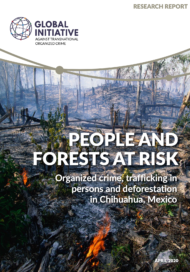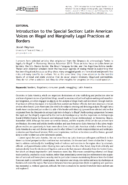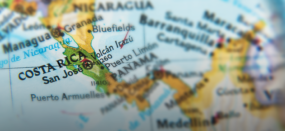Posted on 21 Apr 2020
The Global Initiative Against Transnational Organized Crime (GI-TOC), with generous funding from the United States (US) Department of State’s Office to Monitor and Combat Trafficking in Persons (J/TIP), conducted research on the Mexican forestry sector in 2018 and 2019 to identify links between organized crime, trafficking in persons and deforestation.
The linkages between environmental degradation and human trafficking have pre-viously been explored. However, there is a lack of previous detailed research that examines the nature and mechanisms connecting organized crime, environmental degradation and human trafficking for labour exploitation, or that identifies clear intervention points for specific sectors.
Labour issues in the logging industry have received little attention. In frontier logging zones, there are human-trafficking risk factors, such as displacement, cor-ruption and organized criminal activity. There is also trafficking in illicit goods, such as illegally mined minerals and wildlife products. Workers in illicit industries, such as illegal logging, are inherently at greater risk of human trafficking for labour exploitation as they cannot turn to the authorities for help, and their employers operate out of sight of law enforcement.
To address this gap, the GI-TOC examined the links between organized crime, human trafficking and environmental degradation in the context of active deforestation.
This research found that in the state of Chihuahua, the growing involvement of organized crime in illegal logging and related activities had greatly increased levels of violence, displacement, vulnerability to being trafficked and deforestation. Illegally logged wood from Chihuahua is often laundered and used in the manufac-ture of consumer goods exported to the US. This means that without effective due diligence, companies and consumers who purchase wood-based products from Mexico may be financing organized crime, and contributing to trafficking in persons and deforestation.




